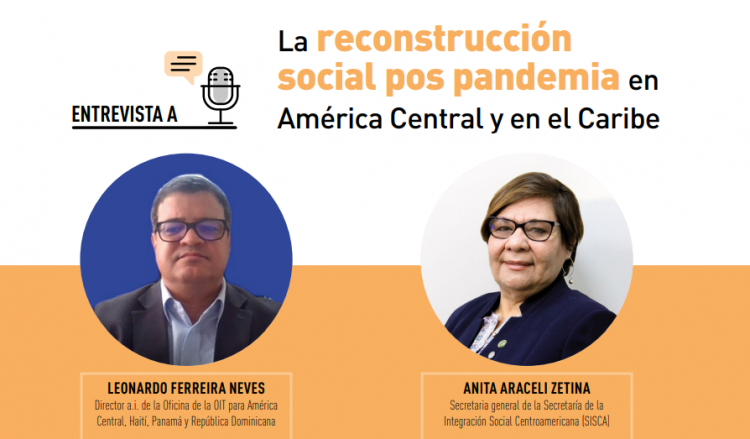Alejandra Mora Mora, Executive Secretary of the Organisation of American States (OAS) Inter-American Commission of Women (CIM)

In the Organisation of American States (OAS) Inter-American Commission of Women (CIM) we have been saying it forcefully from day one: the emergency resulting from COVID-19 is causing disproportionate impacts on the lives of women, not only because the already existing inequalities are deepened, but also because it may imply inadmissible setbacks in terms of the rights achieved. The call to stay at home spread through the hashtag # QuédateEnCasa (“stay at home” in Spanish) has very different implications for women, who were ignored in the design of public policies for the pandemic, under the logic of apparent neutrality.
Although most of the governments in the region, through their Ministries for Women or equivalent, have implemented innovative measures to respond to the differentiated needs of women in the context of the pandemic, from the CIM we have identified the areas that can make a difference in women’s lives in the post-COVID-19 era[1]:
Immediately bring about egalitarian participation by women in decision-making:
There is abundant evidence that decisions that do not include women tend to be biased, less effective, and even sometimes harmful. We do not have precise data on the effective participation of women; however, we have not seen women in crisis cabinets and many voices have criticised their absence. It is a question of political will to ensure that men and women share decisions and that they do so with the appropriate approach; this is something that can happen instantly, without the need for delay.
Redistribute care work:
The CIM and the European Union, through its EUROsociAL+ programme, have published the report The Global Care Emergency[2], which establishes that, if there is no government intervention, inequalities will deepen due to the social organisation of care. Legally establishing people’s right to be cared for is an essential step to ensuring that states assume their part through social protection systems, that the private sector integrates care into the value chains that link the productive sector and that, in the domestic sphere, men participate on equal terms in care tasks.
Fighting poverty with a focus on women:
Studies have warned that, in Latin America, the economic crisis generated by COVID-19 will plunge 118 million women into poverty, 22% more than the number of women who fell below the poverty line in the previous year[3]. In the most unequal region in the world, addressing the biggest problem resulting from this crisis, which is none other than the extension and deepening of poverty, from the gender perspective will be essential for the responses to be effective.
Guarantee equal access for women to the economy and employment:
Women’s jobs are generally less secure and more likely to be informal than men’s. It has been estimated that this year the unemployment rate for women will reach 15.2% in Latin America and the Caribbean[4] . It is necessary to address the risks in the most affected sectors, where there is a high concentration of women. Likewise, it is important to see that the care economy will be a critical pathway in economic recovery. Employment promotion measures must ensure the principle of non-discrimination and include affirmative actions to ensure that women are not left behind.
Combat and eradicate violence against women:
During the lockdown, an increase in cases of gender-based violence against women and girls was recorded in various parts of the region, including an increase in the rate of femicides. The CIM and the Follow-up Mechanism to the Belem do Pará Convention (MESECVI) have established priority measures for prevention, care, access to justice and institutional strengthening with the aim of combating “the other pandemic”.
Promote evidence-based public intervention:
The absence of gender-disaggregated data and research on the most effective policies to combat gender inequalities makes proper decision-making difficult. The need for evidence-based solutions, backed by quality data, remains paramount.
These priorities must be integrated into the new social pacts aimed at the new normal. To do this, the most important thing is that the people who are making the decisions understand that there is no gender-neutral policy and that if they do not incorporate the principle of equality and non-discrimination, both in the design and implementation of policies, it will not be possible to offer adequate and sustainable responses to get out of what is already considered the worst economic crisis in the last hundred years. The new normal must go hand in hand with equality.
[1]More information on:https://www.oas.org/en/cim/COVID-19.asp
[2]Available onhttps://www.oas.org/en/cim/docs/CuidadosCOVID19-ES.pdf
[3]Economic Commission for Latin America and the Caribbean (ECLAC), 2020
[4]Economic Commission for Latin America and the Caribbean (ECLAC), 2020



